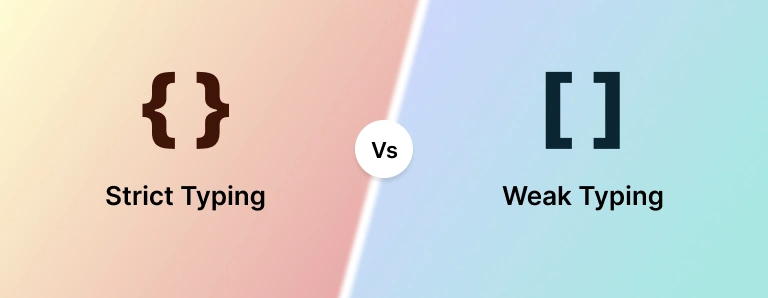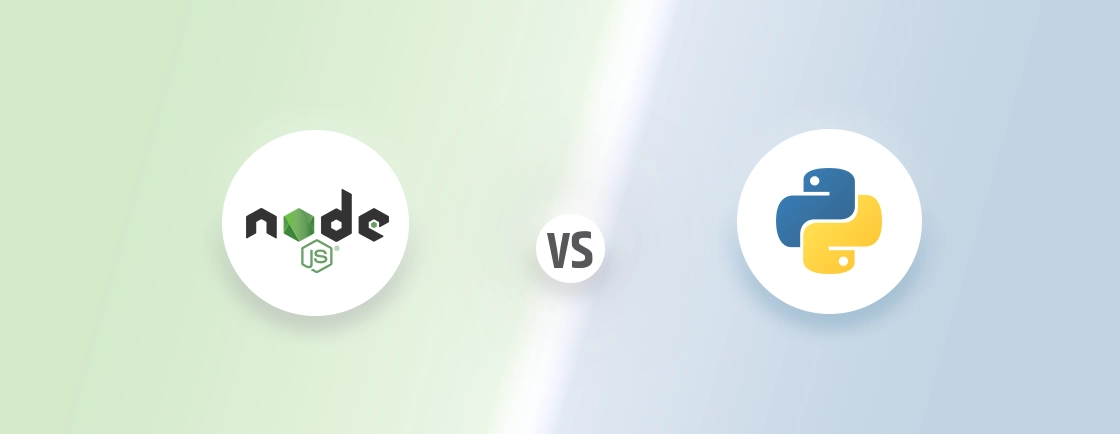Table of Contents
Java has been a popular choice for developers for years, used in everything from web apps to backend services. Recently, Kotlin has been gaining attention as an alternative with some new features. Both these languages are widely used, versatile, robust, object-oriented and can serve as a solid foundation for your development needs.
But when you’re about to start a new project, choosing the right programming language is one of the most important things. In this blog, we’ll take a look at both languages – comparing their strengths and what they offer so that you can make a better choice.
Java vs. Kotlin: Comparison Table
To get a better understanding of the key differences between Java and Kotlin, take a look at this comparison table that highlights their main features.
| Feature | Java | Kotlin |
|---|---|---|
| Syntax | Verbose, more lines of code | Concise, less boilerplate |
| Null Safety | No built-in null safety | Built-in null safety (nullable types) |
| Interoperability | Great interoperability with other languages | Fully interoperable with Java |
| Compilation | Compiled to bytecode (JVM) | Compiled to bytecode (JVM) |
| Lambda Expressions | Supported (since Java 8) | Natively supported from the start |
| Extensions | Limited (relies on libraries) | Supports extension functions |
| Community & Ecosystem | Large, established community and libraries | Growing community with strong Java compatibility |
| Tooling Support | Excellent (IDE support, debugging tools) | Excellent (full IDE support, better for modern Android development) |
| Performance | Generally good, mature JVM optimizations | Comparable performance, with additional modern features |
| Android Development | Used for Android development for years | Preferred language for modern Android development (recommended by Google) |
| Learning Curve | Higher due to verbosity and complexity | Gentler learning curve, more modern features |
Both Java and Kotlin have their strengths, and choosing between them depends on your project needs. While Kotlin comes with modern features, Java has a long-established ecosystem. Both are solid choices for development.
Overview of Java
Java is one of the most popular programming languages in the world. Developed by Sun Microsystems in the mid-1990s (now owned by Oracle), Java has been the foundation of many enterprise-level applications, mobile apps, and web services.
Its “write once, run anywhere” philosophy, made possible by the Java Virtual Machine (JVM), lets developers run Java applications on any device or platform that supports the JVM. Java’s cross-platform capability, along with its rich ecosystem of libraries and frameworks, has made it a top choice for developers across various industries.
Key Features of Java
Java offers a range of features that have made it a reliable and popular choice for developers over the years:
- Object-Oriented: Java is an object-oriented programming (OOP) language, meaning it will organize software design around objects rather than actions. This makes code more modular, reusable, and easier to maintain.
- Platform Independence: Java programs are compiled into bytecode, which can run on any device that has a JVM, making it highly portable.
- High Security: Java has built-in security features like automatic memory management (garbage collection) and a type-checking system, which help prevent errors and ensure the safety of applications.
- Multithreading: Java supports multithreading, so developers can execute multiple tasks simultaneously, improving performance and resource management.
- Large Ecosystem: Java has a wide range of libraries, frameworks (like Spring and Hibernate), and tools, making it good for both small projects and large, enterprise-level applications.
Simply put, Java comes with cross-platform capability and has a rich ecosystem of libraries and frameworks making it a go-to choice for developers. It is object oriented and has high security measures for ensuring safety. It’s good for both small and large scale projects.
Overview of Kotlin
Kotlin is a modern, statically typed programming language. It also runs on the Java Virtual Machine (JVM). Developed by JetBrains and released in 2011, Kotlin was designed to be fully interoperable with Java while addressing some of the language’s limitations. With concise syntax and a focus on safety and expressiveness, Kotlin has quickly gained popularity, especially for Android development.
Google officially endorsed Kotlin as a first-class language for Android development in 2017, and it has since become a preferred choice for mobile and web developers looking for a more modern experience.
Key Features of Kotlin
Kotlin comes with several modern features that make it a more concise, safe, and efficient alternative to Java:
- Concise Syntax: Kotlin’s syntax is designed to be more concise than Java, reducing boilerplate code and making it easier to read and write.
- Null Safety: One of Kotlin’s standout features is its null safety system, which helps developers avoid the common issue of null pointer exceptions by distinguishing between nullable and non-nullable types.
- Interoperability with Java: Kotlin is fully interoperable with Java, meaning you can easily use Java libraries and frameworks in Kotlin projects, and vice versa.
- Smart Casts: Kotlin automatically casts types when possible, eliminating the need for explicit type conversions, which reduces code complexity.
- Coroutines: Kotlin supports coroutines, which are a simpler and more efficient way to handle asynchronous programming and multitasking without the complexity of traditional callbacks or threads.
- Extension Functions: Kotlin allows developers to extend existing classes with new functionality without modifying their code, making it easy to enhance libraries and frameworks without altering their original codebase.
In short, Kotlin is a modern programming language with concise syntax designed to be fully interoperable with Java. It focuses on safety and expressiveness. Features like null safety, smart casts and coroutines make it a preferred choice for android app development.
Java vs. Kotlin: Detailed Comparison
To help you decide between Java and Kotlin, it’s important to understand the key differences between the two. Let’s look at the key differences:
Syntax
Java: Java’s syntax is more verbose, meaning you often need to write more code to achieve the same result. It’s a more traditional and structured approach.
Kotlin: Kotlin offers a more concise syntax, reducing the amount of boilerplate code. It allows for cleaner and more readable code.
Verdict: Both Java and Kotlin offer unique syntax styles. Java is more structured and verbose, while Kotlin is more concise and modern.
Null Safety
Java: Java doesn’t have built-in null safety. Developers need to manually check for null values, which can lead to runtime errors like null pointer exceptions.
Kotlin: Kotlin has built-in null safety, distinguishing between nullable and non-nullable types, helping avoid null pointer exceptions.
Verdict: Java requires more manual checks for null values, whereas Kotlin’s built-in null safety provides an extra layer of protection.
Interoperability with Java
Java: Java is fully compatible with other Java-based tools and libraries, but it doesn’t directly interact with Kotlin code unless explicitly converted.
Kotlin: Kotlin is fully interoperable with Java, meaning Kotlin can easily work alongside existing Java code, and you can use Java libraries in Kotlin projects.
Verdict: Both languages are interoperable with each other, with Kotlin being especially designed to work well with Java code.
Learning Curve
Java: Java has a steeper learning curve due to its verbosity and more rigid structure. It requires a solid understanding of programming concepts.
Kotlin: Kotlin is generally easier to learn because of its concise syntax and modern features, which reduce complexity.
Verdict: Java and Kotlin each have a learning curve, but Kotlin’s simpler syntax may make it easier for new developers to grasp, while Java’s structure can be beneficial for understanding core programming principles.
Performance
Java: Java offers solid performance due to optimizations in the JVM. It’s highly efficient and widely used in various industries.
Kotlin: Kotlin also runs on the JVM, so its performance is similar to Java’s. Some Kotlin features may have slight overhead in certain scenarios.
Verdict: Both Java and Kotlin offer similar performance, with Kotlin introducing some additional features that may impact performance in specific cases.
Support for Functional Programming
Java: Java introduced functional programming features, such as lambdas, in Java 8, but it remains primarily object-oriented.
Kotlin: Kotlin fully supports both object-oriented and functional programming, offering advanced functional features like higher-order functions.
Verdict: Java provides functional programming features, but Kotlin offers a more comprehensive and flexible approach to functional programming.
Android Development
Java: Java has been the main language for Android development for years and is still widely used.
Kotlin: Kotlin is now officially supported by Google and is preferred for new Android projects due to its modern features and ease of use.
Verdict: Java and Kotlin are both widely used for Android development, with Kotlin being the recommended choice for new projects due to its modern features.
Community & Ecosystem
Java: Java has a long-established community and a vast ecosystem, with numerous libraries, tools, and frameworks developed over the years.
Kotlin: Kotlin’s community is growing, especially in Android development, and it’s backed by JetBrains and Google. Its ecosystem is expanding quickly.
Verdict: Both Java and Kotlin have strong communities and ecosystems. Java’s community is larger and more established, while Kotlin’s is growing rapidly, especially in Android development.
To sum up, Java and Kotlin both bring valuable features to the table, with Java offering a mature ecosystem and reliability, and Kotlin providing modern syntax and additional features. The right choice depends on your project needs and preferences.
Java vs. Kotlin: What to Choose?
Choosing between Java and Kotlin can depend on your specific project needs, team experience, and development goals. Both languages have their advantages, so let’s break down when one might be a better choice than the other.
Choose Java If:
- You need to work with an established, mature language that has a large ecosystem and long history of success in web, enterprise, and mobile development.
- Your team is already experienced with Java, and you’re maintaining or building on existing Java-based projects.
Choose Kotlin If:
- You’re starting a new Android project or mobile app development and want a modern, concise, and safer language with great support for functional programming.
- You want a more streamlined, less verbose language that’s easier to read and write, with built-in features like null safety and extension functions.
Java remains a strong choice for large-scale, enterprise-level applications, while Kotlin is a great option for modern, efficient app development, especially for Android. The right choice depends on your project’s needs and your team’s experience.
Java vs. Kotlin: Which is Better?
Kotlin and Java are both great programming languages, but they have some key differences. Java is a well-established language with a large community and plenty of libraries, making it a solid choice for many projects. On the other hand, Kotlin offers modern features and simpler, more concise code, which is appealing to many developers.
Kotlin’s focus on null safety and functional programming makes it perfect for building modern apps, while Java’s performance and extensive libraries are ideal for enterprise-level applications.
Choosing between Java and Kotlin depends on your project’s needs and your development team’s experience. If you need professional help with your Java project, our Java development company is ready to assist you.
FAQs on Java vs. Kotlin
Is Kotlin replacing Java?
Kotlin is gaining popularity, especially for Android development, but Java is still widely used in many areas, particularly for enterprise applications. It’s not completely replacing Java, but rather complementing it.
Which one should I choose for my app development, Java or Kotlin?
If you’re starting a new Android project, Kotlin is a great choice due to its modern features. For large-scale enterprise apps or maintaining existing Java code, Java might be the better option.
Which programming language is future-proof?
Both Java and Kotlin have strong futures. Java continues to be a staple in enterprise development, while Kotlin is quickly growing in popularity, especially for Android apps. It depends on your project’s needs and industry trends.
Compare the best tech side by side.
Our in-depth comparisons help you see features, pros & cons, and choose the right tools confidently.





